Over 70% are Concerned about Disasters, but Fire Safety Measures for Windows are Often Overlooked
– 70% of fatalities in a Tokyo Metropolitan Earthquake projected to result from fire, but over 80% remain unaware –
Ahead of Disaster Prevention Day on September 1, Nippon Electric Glass Co., Ltd. (Head Office: Otsu, Shiga, Japan; President: Akira Kishimoto) conducted an online survey on disaster preparedness awareness among 600 men and women nationwide, aged in their 20s to 60s.
The results revealed that although over 70% of respondents feel anxious about disaster risks, preparedness for fires—particularly those that occur following major disasters—remains insufficient. Notably, more than 80% of respondents were unaware of the government’s estimate that approximately 70% of deaths in a major Tokyo Metropolitan Earthquake could be due to fire.
Disaster preparedness is often associated with “getting ready to evacuate.” But is that enough to ensure safety? This survey sheds light on current public awareness and reveals blind spots in disaster prevention—particularly related to fire and windows.
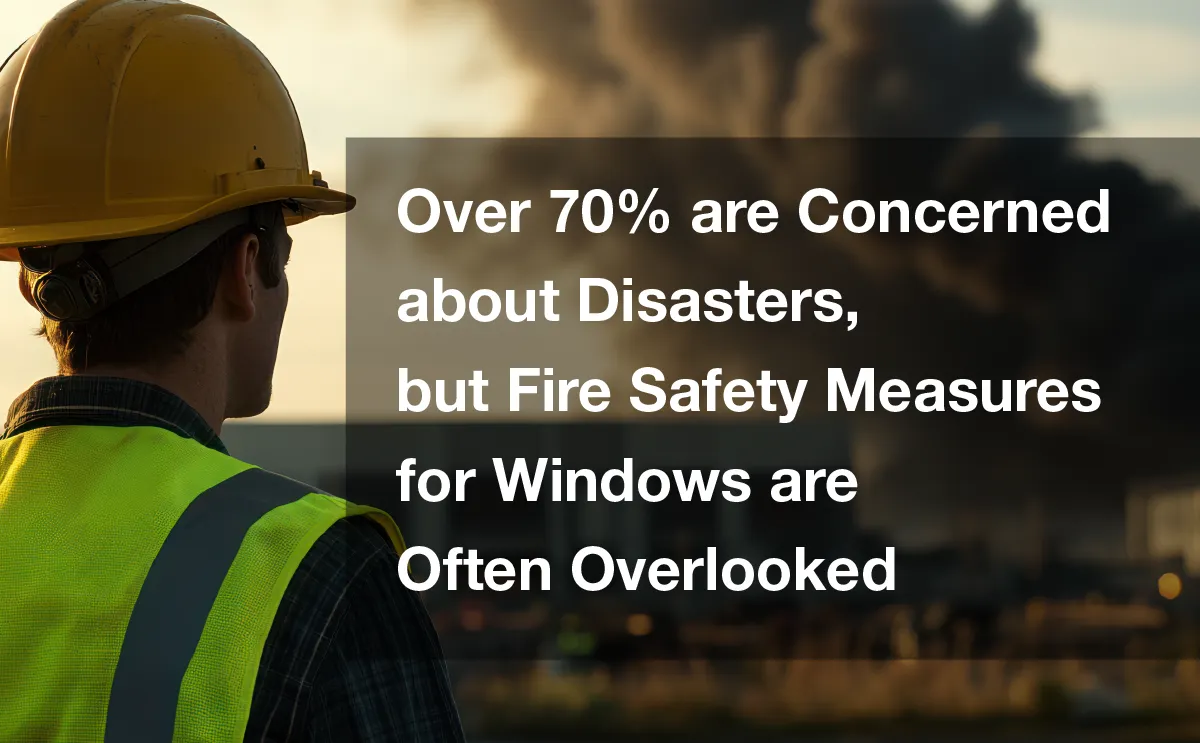
Key Survey Findings
・84.8% of respondents answered they were either unaware or only vaguely aware of the Cabinet Office’s assumption that about 70% of deaths in a Tokyo Metropolitan Earthquake would be caused by fire.
・75.5% did not fully understand that shattered windows can cause the fire spread.
・Only 5.8% reported taking specific fire safety measures as part of disaster preparedness.
・35.0% answered that they had taken no disaster countermeasures at all.
・47.7% did not check the fire-resistance performance of windows when purchasing or renting a residence.
・47.7% mistakenly believed that wired glass is heat-resistant, indicating widespread misconceptions that could hinder proper responses during a fire.
■ Over 70% express concern about disasters — Earthquakes top the list
When asked how concerned they were about experiencing a disaster, 70.2% responded “very concerned” or “somewhat concerned.” This shows that disaster risks are widely recognized in daily life.
In terms of specific disasters, the most feared was “earthquake” (90.3%), followed by “typhoon” (48.9%) and “floods or heavy rain” (39.9%). These results reflect both the frequency and severity of natural disasters in Japan.
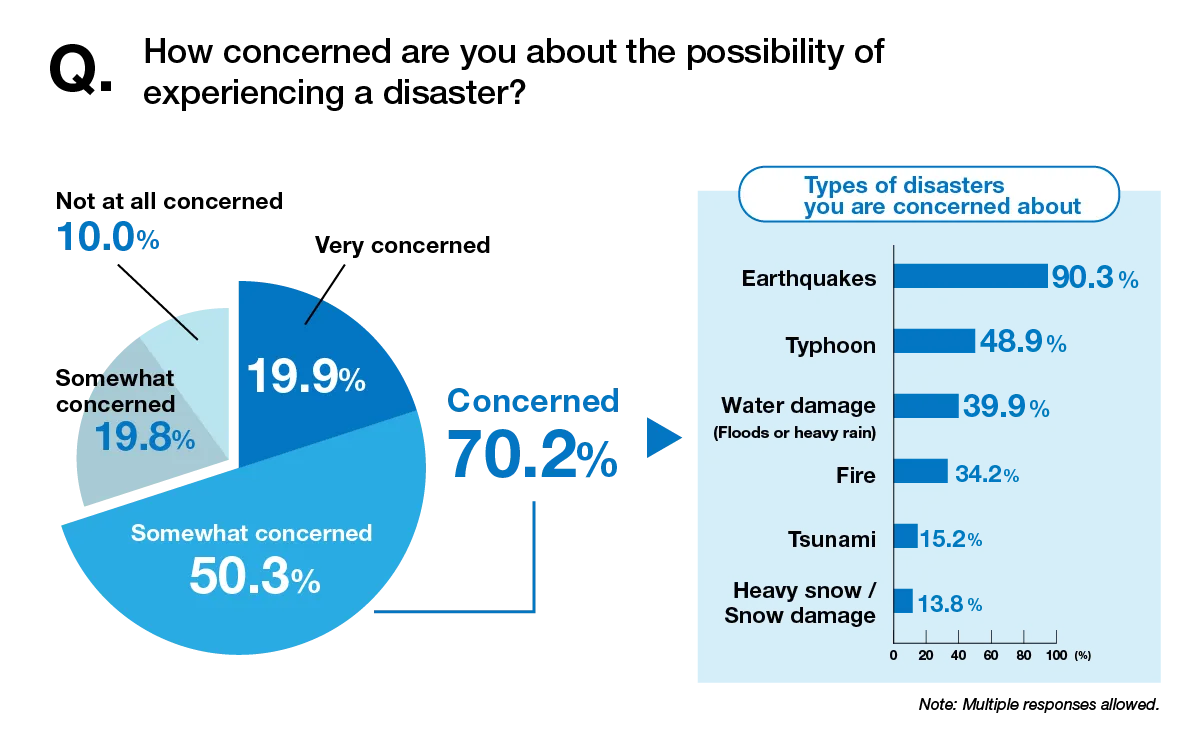
■ Fire preparedness at home is a major blind spot — Only 5.8% take action
The most common home-based disaster preparations were:
Preparing an emergency bag and stockpiles (39.7%)
Securing furniture (28.3%)
Enrolling in fire or earthquake insurance (26.8%)
However, despite 34.2% of respondents expressing anxiety about fire, only 5.8% had implemented specific fire safety measures. Moreover, 35.0% stated they had not taken any disaster countermeasures at all, indicating a clear gap between concern and actual preparedness for fire risks.
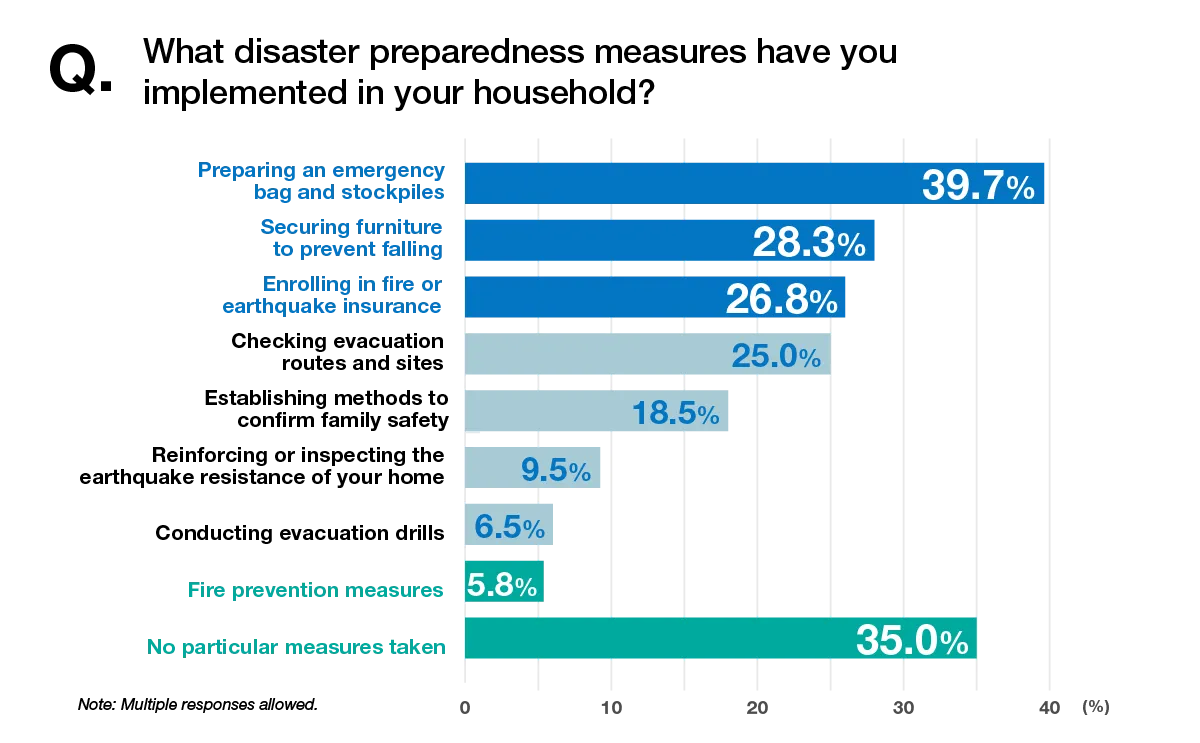
■ 70% of deaths in a Tokyo Metropolitan Earthquake projected to be from fire — Yet over 80% are unaware
According to the Cabinet Office, "In an earthquake directly beneath the Tokyo Metropolitan area, approximately 70% of the estimated death toll is expected to be caused by fires" (*1).
When asked about this, 84.8% responded that they either did not know or were only vaguely aware of this projection—despite the seriousness of post-earthquake fire risks.
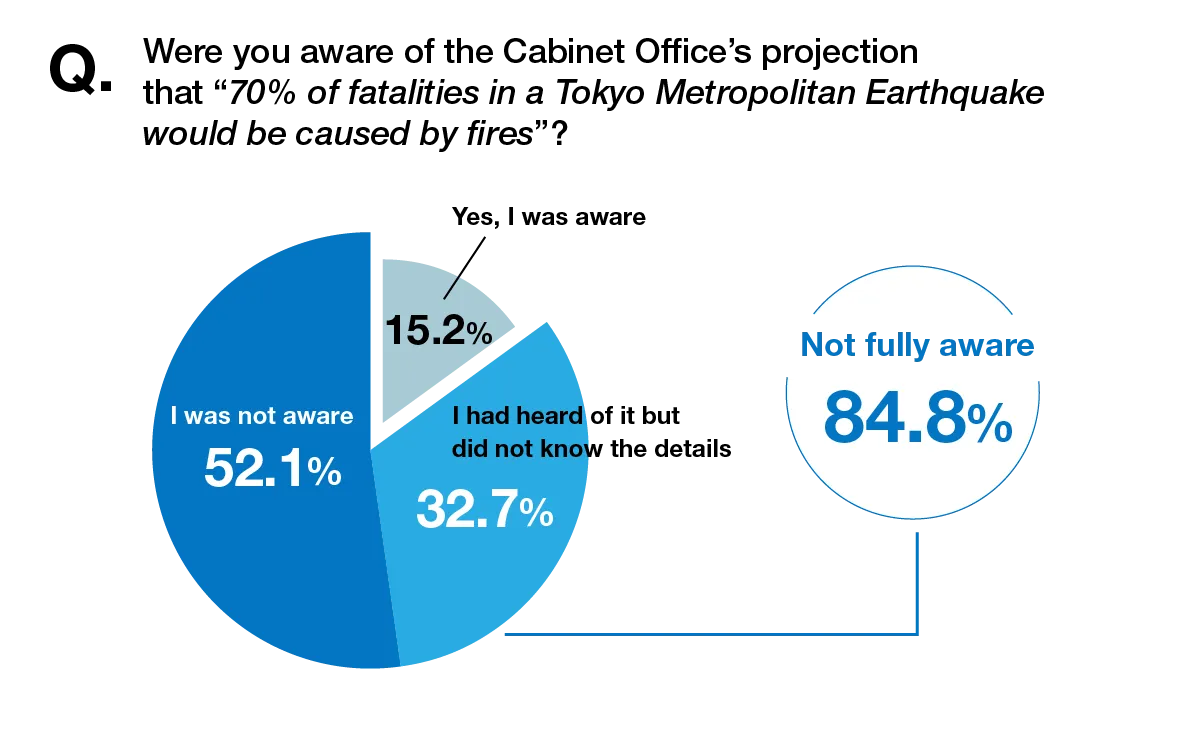
In addition, over 70% (75.5%) answered that they "did not know" or "had heard of but did not know in detail" the fact that "there is a risk of damage spreading due to broken windows in case of fire." It became clear that many people do not fully understand how cracked windows can cause the spread of fire.
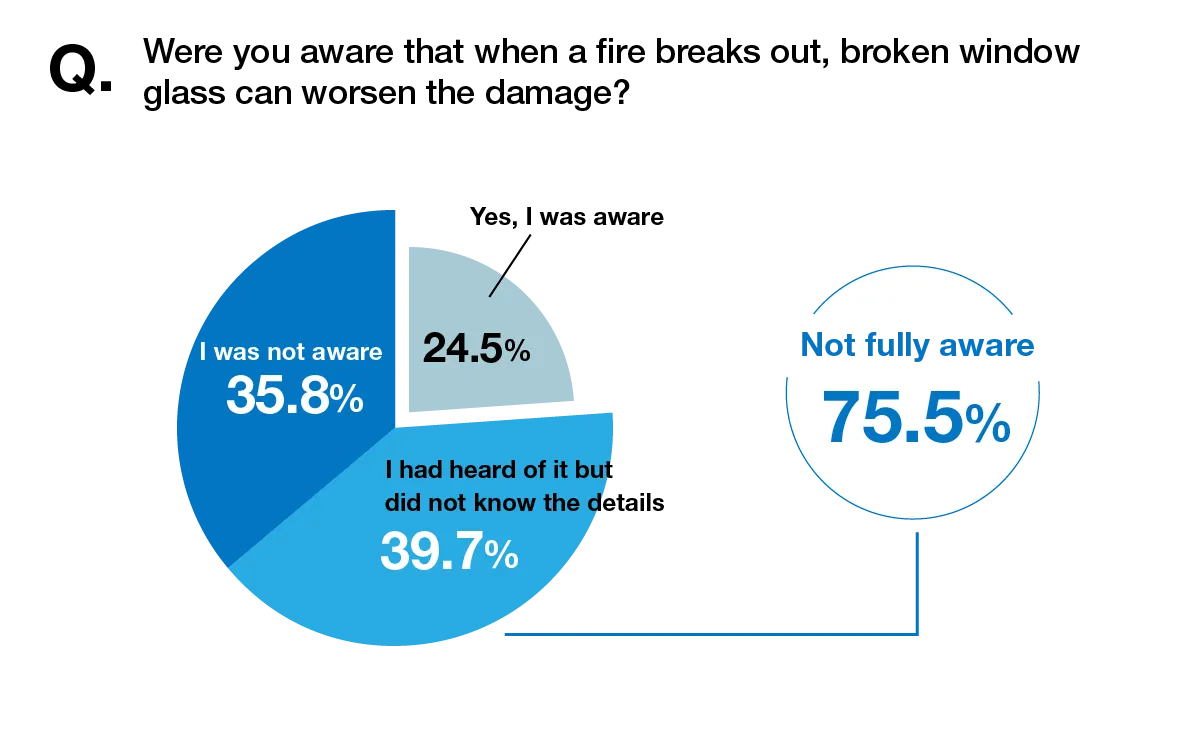
*1 Source: Cabinet Office “Damage estimates of a Tokyo Inland Earthquake”
https://www.soumu.go.jp/main_content/001007208.pdf
■ Almost half don’t check the fire-resistance of windows — A blind spot in housing decisions
47.7% of respondents answered “No” to the question, “When purchasing or renting a house, did you check the fire performance of the windows?”
Among the reasons:
“I had never considered the fire-resistance performance of a home” (46.5%)
“It’s a rental property, so I thought it was outside my control” (21.3%)
“I assumed there would be no problem if it was built in accordance with the Building Standards Act” (21.3%)
“I thought the likelihood of a fire was low” (16.8%)
These results highlight that window fire-resistance is rarely considered in housing decisions.
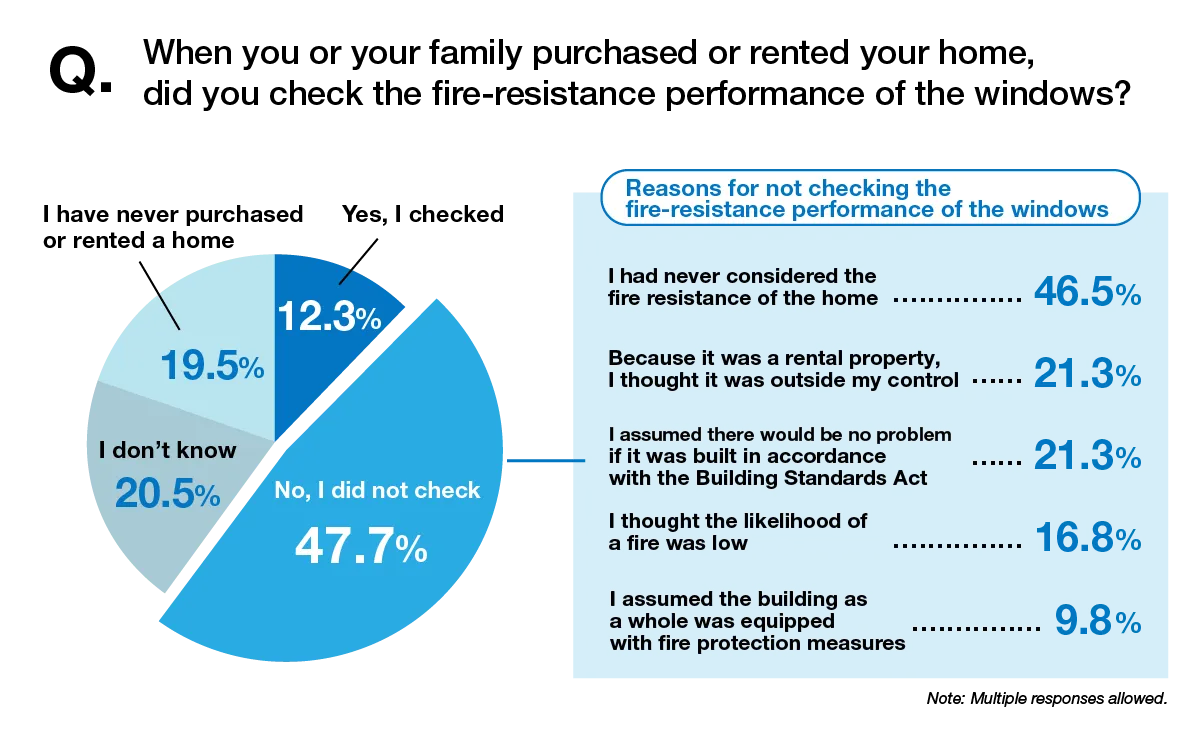
■ Misconception: “Wired glass is heat-resistant” — A barrier to proper fire safety action
The survey also revealed that 61.0% of respondents did not know about fire-resistant glass—glass that is specially engineered to resist high temperatures and flames.
Additionally, 47.7% believed that wired glass is heat-resistant, indicating a widespread misunderstanding.
In fact, wired glass offers some fire resistance, but due to the embedded wire mesh, it is prone to thermal cracking. This misconception may hinder safe decision-making in the event of a fire.
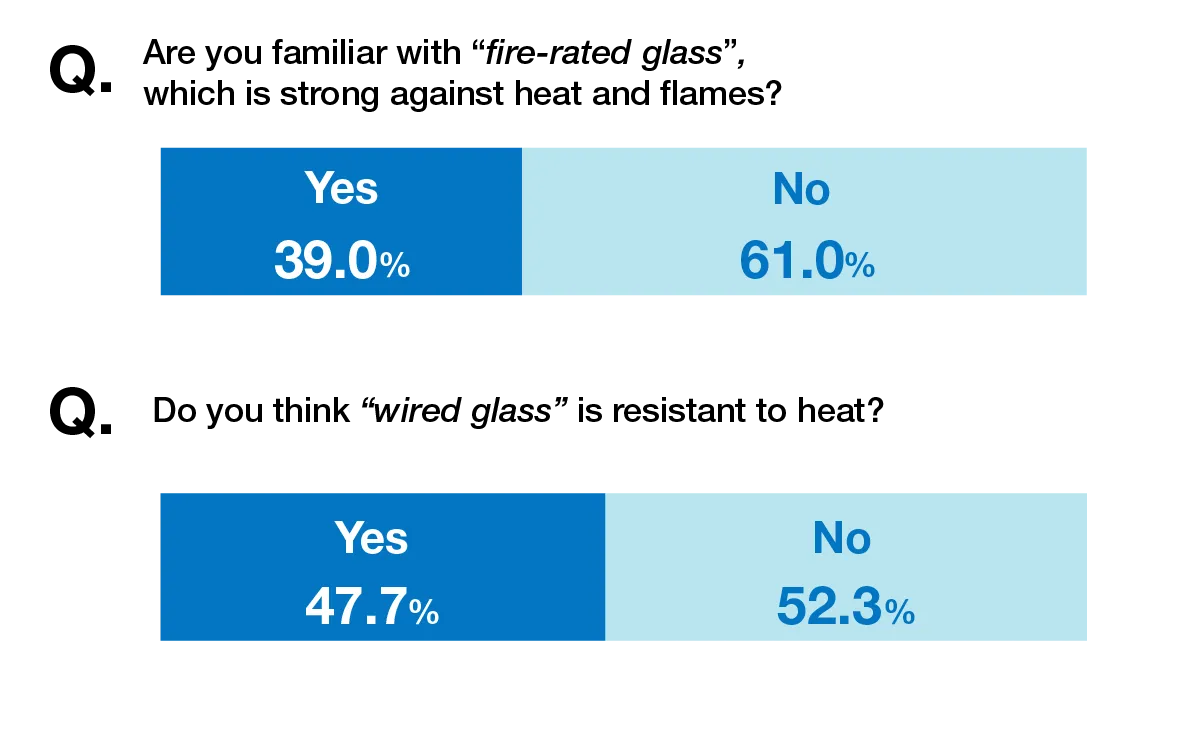
■ A New Perspective on Disaster Prevention: “Don’t Penetrate, Don’t Spread” — Featuring FireLite® by Nippon Electric Glass
This survey reveals that while people are increasingly aware of disaster risks, they are overlooking the fire risks following earthquakes—and the critical role that windows can play in preventing them.
Traditionally, disaster preparedness focuses on “evacuation readiness” like preparing emergency bags or securing furniture. We must also prepare to prevent fires from passing through or spreading.
One such solution is FireLite®, heat-resistant glass-ceramic developed by Nippon Electric Glass.
Unlike regular glass, it has a virtually zero coefficient of thermal expansion and can withstand thermal shock, such as being sprayed with water at 800°C, without cracking.
It is the only glass product in Japan that meets the standards for fire-resistant and fire-protection applications without cracking under extreme heat or sudden cooling during fire extinguishing.
FireLite® has been adopted in fire experiments by the Tokyo Fire Department, has been tested to conform with U.S. UL standards, and has proven its performance both domestically and internationally.
With Disaster Prevention Day approaching, we encourage everyone to reassess their disaster preparedness — not only for escape, but also to reduce fire risks.
Why not start by looking at your windows and asking whether your home is really fire-safe?
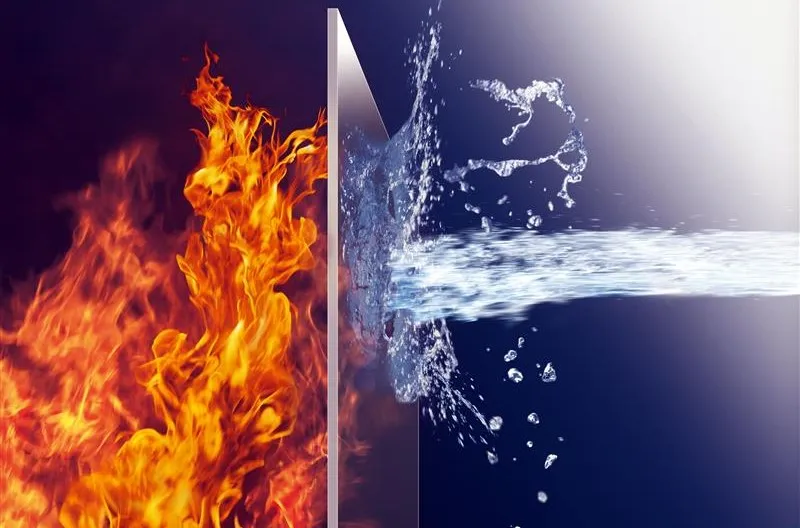
■ Application Examples

The FireLite® series has been used in Hotel Rakuragu (Chuo-ku, Tokyo) (left photo) and JR Kawasaki Station (center and right photos). Its use is expanding across residential buildings, hotels, and public facilities.
■ Survey Overview
Survey subjects: Men and women aged 20–69
Method: Online survey
Date: Wednesday, July 23, 2025
Valid responses: 600
■ Notes on Citing the Survey
Please credit with: “Survey by Nippon Electric Glass”
If using this document online, please include the following source URL:
https://www.neg.co.jp/products/firelite/index.html
■ About FireLite®
FireLite® is a fire-rated glass made of low-expansion glass-ceramic that withstands even under high temperatures up to 800°C.
It has high durability, making it resistant to breaking even during fire or extreme heat.